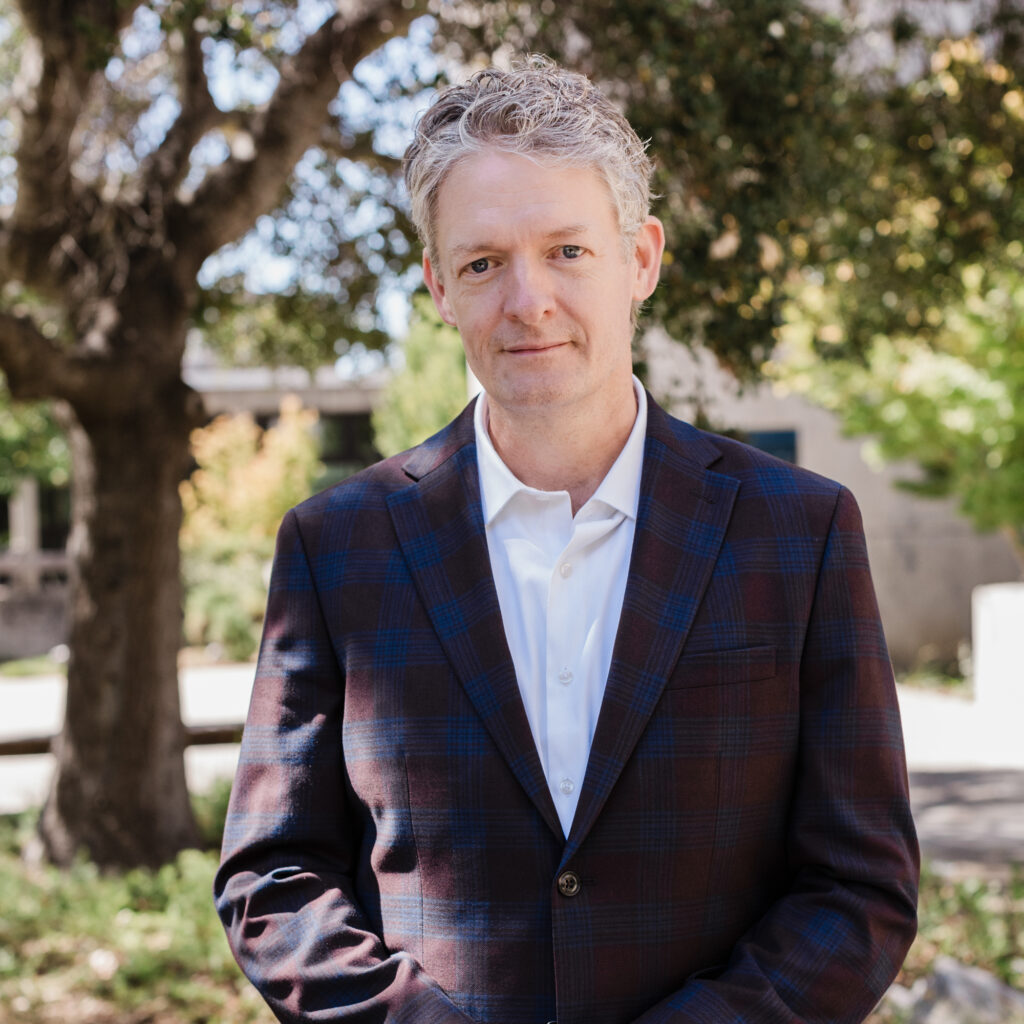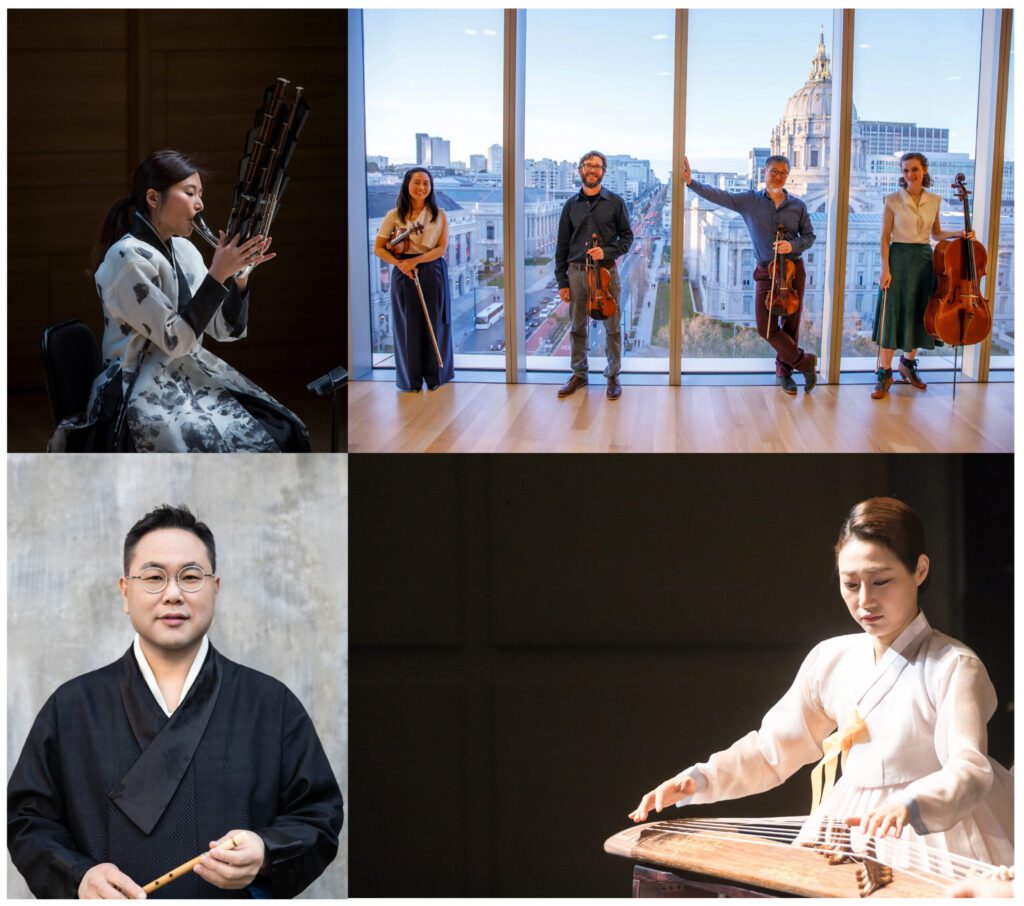The Korean Experimental Music Festival offers two free concerts a night at UC Santa Cruz’s Music Center Recital Hall on Nov. 14–15, featuring Korea’s foremost traditional music institution, the National Gugak Center. The musicians will play compositions by graduate students and faculty members from UC Santa Cruz, UC Berkeley, and Stanford University. The first night will present music for a Western string quartet with players of the gayageum, a harp- or zither-like plucked-string instrument from Korea. On the second night, Korean wind instruments will be combined with electronic music.
The festival, supported by the UCSC Music Department, Porter College, and the Arts Research Institute, will span three college campuses, presenting a total of ten concerts throughout its run. UC Santa Cruz Assistant Professor of Music Matthew Schumaker, says this festival is a sort of offshoot of the Pacific Festival that his colleague, Hi Kyung Kim, started in 1996. For this upcoming festival, he and Kim wanted to explore novel combinations, he says.
“The idea was to bring these instruments of the living Korean tradition together with cutting edge technologies and to engage in this work collaboratively with our colleagues at UC Berkeley and Stanford.” Schumaker said. “Then we’ve enlisted the great Del Sol string quartet in the Bay Area, and they’re going to be performing with two Korean gayageum soloists. We have a whole slew of composers who are writing pieces for two gayageums and a string quartet, something that’s never really been done before.”
Schumaker compares the National Gugak Center to the New York Philharmonic in terms of importance and proficiency. He says a deep connection with the organization, fostered by Professor Hi Kyung Kim, opened the world of Korean music to UC Santa Cruz’s faculty and students.
The UC Santa Cruz Music Department and its collaborators at other Bay Area universities have been preparing for this festival for two years, with master Korean musicians doing workshops online with composition students and faculty as well as teaching them on campus.



Some members of the department, like Professor of Music Ben Leeds Carson, have also gone to Korea to study. There he learned about Korean improvisation, scales and melodies, as well as how to play both the piri, a double reed instrument, and the gayageum.
Carson, who composed a piece for the concerts for gayageum, cello, and viola, says Schumaker has done a wonderful job of organizing the festival, which fits the mission of the department to break the binary between the “West and the rest.” This dovetails, Carson says, with what the National Gugak Center is doing to “dissolve the myth that modern music and technological music is Western.”
Schumaker also composed a piece for piri and electronic music after an intensive workshop on campus with Chi-Wan Park, one of seven musicians from the National Gugak Center who is coming to perform at the festival. After the workshop, Schumaker also travelled to Seoul, with support from the University of California’s Hellman Fellows Program, to develop the work with Park. The piece interweaves the electronically-treated sounds of the piri with the voice of renowned Berkeley poet Cathy Park Hong, reading from her poetry.
UC Santa Cruz doctoral student Nina Barzegar is one of the composers featured in the festival. A member of the Iranian Female Composers Association, Barzegar works across film, theater, and concert music. She grew up in Iran with a strong interest in Western classical music, but after moving to California, she developed a deeper interest in the music of her own country—and has recently expanded her explorations to include Korean music.
Barzegar values the opportunities at UC Santa Cruz to engage with diverse musical traditions. She attended several workshops on the gayageum and integrated her own perspective into her composition.
“My piece is based on a traditional Iranian song that dates back more than a century,” she said. “Its subtle ornaments and expressions sound different on Iranian instruments, and when reimagined for Korean instruments, the new timbre feels fresh and beautiful. It’s like hearing a non-Persian speaker speak Persian—a familiar melody, yet transformed.”
Barzegar says she is eager to continue learning about other musical cultures, many of which have been overlooked due to the dominance of Western classical music.
“As a composer, hearing works written by artists from different backgrounds for Korean instruments is an extraordinary auditory experience,” she said. “Our perceptions of these instruments vary widely, and the repertoire for such ensembles is limited, which makes this collaboration truly special—for both composers and audiences.”
“I hope projects like this happen more often at UCSC and beyond,” she added. “This kind of peaceful dialogue between cultures is exactly what the world needs today.”

